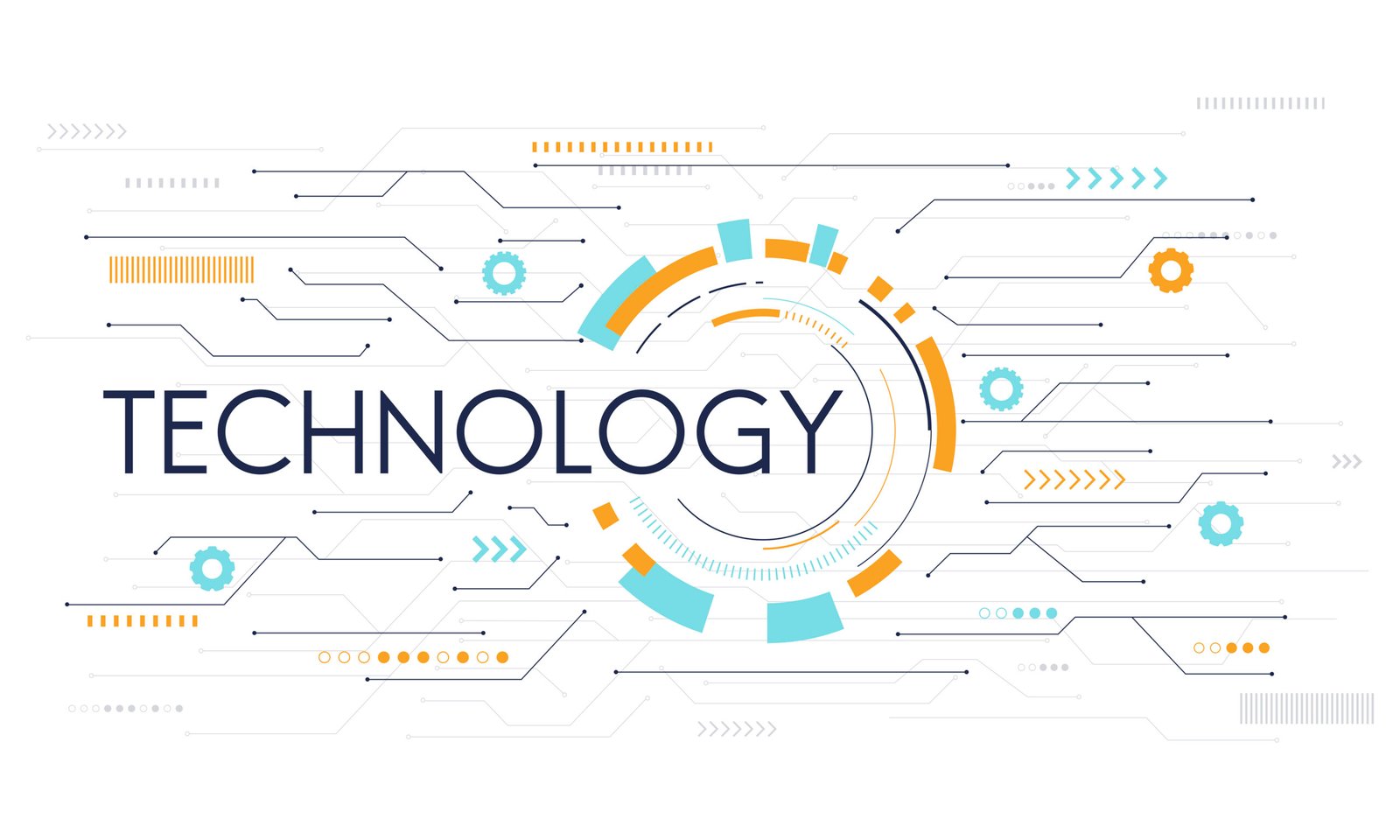Now Reading: “What Is Technology? An Easy Guide to Its Types and Importance in Modern Life”
-
01
“What Is Technology? An Easy Guide to Its Types and Importance in Modern Life”
“What Is Technology? An Easy Guide to Its Types and Importance in Modern Life”

What Is Technology? Definition, Types, and Its Impact on Our Lives
Technology is everywhere around us. From the moment we wake up to the time we go to sleep, we interact with technology in countless ways. But what exactly is technology? Many people think of it as just gadgets—like smartphones, laptops, or smartwatches. In reality, technology is much broader. It refers to the tools, systems, and processes designed to solve problems, make tasks easier, and improve human life.
Think about it: the wheel, the compass, the printing press, electricity, and the internet are all technologies that completely changed the way humans live. Today, artificial intelligence, robotics, and biotechnology are driving another wave of transformation, reshaping everything from industries to our daily routines.
In this article, we’ll dive deep into the definition, evolution, types, impact, advantages, disadvantages, and future of technology to better understand how it influences our world.
Understanding the Definition of Technology
The word technology comes from the Greek words techne (art or skill) and logia (study). Put simply, technology is the application of knowledge, skills, and innovation to create tools, methods, and systems that solve real-world problems.
This means technology is not limited to electronics—it includes every invention and method humans have developed to make life more efficient. For example:
- A stone axe used by early humans was a form of technology.
- The printing press invented in the 15th century was a revolutionary technology for knowledge-sharing.
- Today, cloud computing and AI are cutting-edge technologies changing the way we live and work.
So, whether it’s a simple hammer or a complex machine learning algorithm, all of it falls under the umbrella of technology.
The Evolution of Technology: From Ancient Tools to AI
Technology has evolved across different eras, each bringing massive changes to human society. Let’s take a closer look:
1. Ancient Era
In the earliest days, technology meant basic survival tools. Inventions like the wheel, lever, pulley, and compass helped humans hunt, farm, travel, and communicate. The printing press (1440) by Johannes Gutenberg was a turning point in history, making books accessible to the masses and spreading education.
2. The Industrial Revolution (18th–19th Century)
This period marked the shift from handcraft to machine-based production. Inventions like the steam engine, spinning jenny, and power loom transformed industries. Railways and factories allowed mass production, changing economies and societies forever.
3. The Digital Age (20th Century)
The invention of the computer, internet, and mobile devices gave rise to the Information Age. Suddenly, people could store, process, and share data instantly. This era completely redefined communication, education, entertainment, and business.
4. The Modern Era (21st Century)
We now live in an era of artificial intelligence, robotics, smart devices, biotechnology, and renewable energy. These innovations are reshaping industries, healthcare, education, and even our personal lifestyles. Self-driving cars, telemedicine, and smart homes are no longer futuristic dreams—they are becoming everyday realities.
Major Types of Technology
Technology is diverse and can be classified into different categories based on its purpose and application:
1. Communication Technology
This includes devices and platforms that enable people to connect globally. Examples:
- Smartphones
- Social media platforms (Instagram, Facebook, Twitter)
- Email and instant messaging
- Video conferencing tools like Zoom and Microsoft Teams
2. Information Technology (IT)
IT deals with storing, processing, and managing data. Examples:
- Computers and servers
- Cloud computing platforms (Google Drive, AWS)
- Databases and cybersecurity systems
3. Medical Technology
Healthcare has been transformed by technology. Examples:
- MRI and CT scan machines
- Wearable health trackers (smartwatches, fitness bands)
- Telemedicine apps
- Robotic-assisted surgeries
4. Industrial and Manufacturing Technology
Technology has made industries faster and more efficient. Examples:
- Robotics and automation in factories
- 3D printing
- Supply chain management systems
- Renewable energy solutions like solar panels
5. Educational Technology (EdTech)
Learning has gone digital, making knowledge accessible worldwide. Examples:
- E-learning platforms (Coursera, Udemy, Khan Academy)
- Virtual classrooms and video lectures
- Interactive learning apps and gamification tools
6. Entertainment Technology
Entertainment is now highly digital. Examples:
- Streaming services (Netflix, Spotify, YouTube)
- Gaming consoles and VR headsets
- Digital animation and film-making software
How Technology Impacts Our Daily Lives
Technology influences every part of our lives, sometimes in ways we don’t even notice. Let’s explore its role:
- Communication: Instant messaging, social media, and video calls keep us connected to loved ones across the world.
- Work and Productivity: Remote work tools, automation, and AI-based software make tasks faster and more efficient.
- Healthcare: Technology improves diagnosis, treatment, and patient care, increasing life expectancy and overall health.
- Education: Online classes and digital libraries provide access to education for millions of people globally.
- Entertainment: Streaming services, gaming platforms, and virtual reality offer endless sources of fun and relaxation.
- Transportation: Ride-sharing apps, electric cars, and navigation systems make travel easier and more sustainable.
The Pros and Cons of Technology
Like everything in life, technology has its advantages and disadvantages.
✅ Pros of Technology
- Increases productivity and efficiency in both personal and professional life.
- Improves healthcare through medical advancements.
- Connects people globally with instant communication.
- Provides access to knowledge anytime, anywhere.
- Creates new job opportunities in emerging industries.
❌ Cons of Technology
- Privacy and security risks, such as data theft and hacking.
- Increased screen time, leading to digital addiction and health issues.
- Job displacement due to automation and robotics.
- Environmental concerns, as electronic waste and energy consumption rise.
- Social isolation, as excessive use of technology sometimes reduces face-to-face interactions.
The Future of Technology: What Lies Ahead?
The future of technology looks exciting and promising. Here are some trends to watch:
- Artificial Intelligence & Machine Learning: Smarter systems that can learn, adapt, and assist in decision-making.
- Blockchain: Transforming finance, supply chains, and data security.
- Renewable Energy Tech: Solar, wind, and green innovations to fight climate change.
- Biotechnology & Genetics: Personalized medicine, gene editing, and biotech farming.
- Space Technology: Space tourism, lunar bases, and Mars exploration.
- Metaverse & Virtual Reality: Immersive experiences in entertainment, work, and education.
Embracing Technology Wisely
Technology has come a long way—from the invention of the wheel to the rise of artificial intelligence. It has made life easier, connected the world, and opened new opportunities. But at the same time, it brings challenges like privacy concerns, job displacement, and digital dependency.
The key is not to reject technology but to use it wisely and responsibly. By embracing innovation while staying mindful of its risks, we can ensure technology continues to improve lives and contribute to a sustainable future.
Frequently Asked Questions (FAQs) About Technology
Q1. What is the simple definition of technology?
Technology refers to the tools, systems, machines, and methods created by humans to solve problems, improve efficiency, and make life easier. It can be as simple as a hammer or as advanced as artificial intelligence.
Q2. How has technology evolved over time?
Technology has evolved from basic tools like the wheel and printing press to industrial machines, computers, the internet, and now artificial intelligence, robotics, and smart devices. Each stage of evolution has reshaped human life, work, and communication.
Q3. What are the main types of technology?
The main types include:
- Communication Technology (smartphones, social media, video conferencing)
- Information Technology (computers, cloud storage, data systems)
- Medical Technology (telemedicine, wearable devices, diagnostic tools)
- Industrial Technology (automation, robotics, advanced manufacturing)
- Educational Technology (e-learning platforms, virtual classrooms)
Q4. How does technology impact daily life?
Technology impacts almost every aspect of modern life—communication, healthcare, education, work, entertainment, and even shopping. It connects people globally, improves efficiency, and provides access to unlimited information.
Q5. What are the pros and cons of technology?
Pros: Enhances productivity, improves healthcare, facilitates learning, and connects people worldwide.
Cons: Raises privacy concerns, increases digital dependency, and may cause job loss due to automation.
Q6. What is the role of technology in education?
Technology in education enables online learning, virtual classrooms, digital resources, and interactive tools that make education more accessible and engaging for students worldwide.
Q7. Can technology replace human jobs?
Technology, especially automation and AI, can replace repetitive or routine jobs, but it also creates new opportunities in fields like software development, digital marketing, data analysis, and robotics.
Q8. What will technology look like in the future?
The future of technology will likely include more advanced AI, virtual reality, blockchain, quantum computing, and sustainable innovations aimed at solving global challenges such as climate change and healthcare access.












